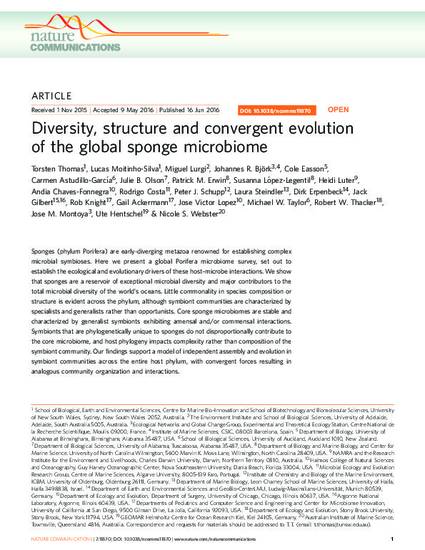
Sponges (phylum Porifera) are early-diverging metazoa renowned for establishing complex microbial symbioses. Here we present a global Porifera microbiome survey, set out to establish the ecological and evolutionary drivers of these host–microbe interactions.We show that sponges are a reservoir of exceptional microbial diversity and major contributors to the total microbial diversity of the world’s oceans. Little commonality in species composition or structure is evident across the phylum, although symbiont communities are characterized by specialists and generalists rather than opportunists. Core sponge microbiomes are stable and characterized by generalist symbionts exhibiting amensal and/or commensal interactions. Symbionts that are phylogenetically unique to sponges do not disproportionally contribute to the core microbiome, and host phylogeny impacts complexity rather than composition of the symbiont community. Our findings support a model of independent assembly and evolution in symbiont communities across the entire host phylum, with convergent forces resulting in analogous community organization and interactions.
Available at: http://works.bepress.com/jose-lopez/205/

This work is licensed under a Creative Commons Attribution 4.0 International License. The images or other third party material in this article are included in the article’s Creative Commons license, unless indicated otherwise in the credit line; if the material is not included under the Creative Commons license, users will need to obtain permission from the license holder to reproduce the material. To view a copy of this license, visit http://creativecommons.org/licenses/by/4.0/